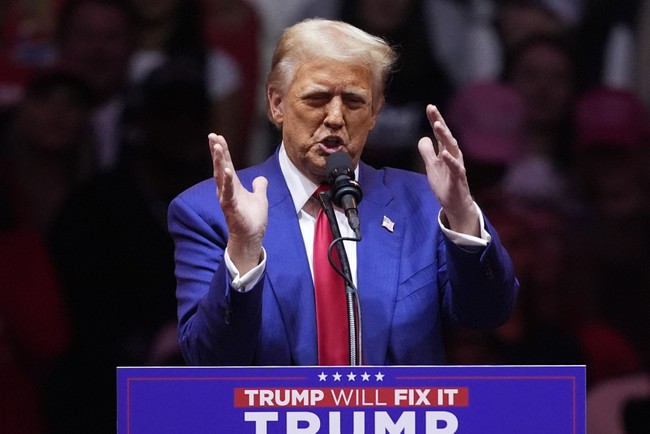Democrats in Turmoil Over Biden's Future Amid Trump Surge
As the 2024 election draws near, Democratic leaders are grappling with President Biden's declining popularity and potential defeat to Trump, revealing deep-seated divisions within the party.
Published July 11, 2024 - 00:07am

Image recovered from washingtonexaminer.com
The Democratic Party is facing an intense internal struggle as uncertainty mounts over the viability of President Joe Biden's candidacy for the 2024 presidential election. As former President Donald Trump gains momentum in the polls, prominent Democrats express doubts about Biden's ability to secure victory, potentially leading to catastrophic down-ballot losses.
Senator Michael Bennet of Colorado has emerged as one of the most vocal critics, warning that the party is on a perilous trajectory. Speaking on various media platforms, Bennet has repeatedly expressed his belief that Trump could not only win but potentially do so by a landslide, bringing the Senate and House under Republican control. He argues that the current election dynamics present a moral crisis for the nation and the Democratic Party, urging for a reassessment of Biden's candidacy.
During a private Senate Democratic caucus, Senators Jon Tester of Montana and Sherrod Brown of Ohio echoed Bennet's concerns. While neither has formally called for Biden to step aside, their comments reflect a growing unease about the party's prospects. Brown, who faces a tough reelection battle, has been particularly evasive regarding his stance on Biden, highlighting the awkward position of many vulnerable Democratic incumbents.
Despite these worries, the Democratic leadership remains publicly supportive of Biden's candidacy. Speaker Emerita Nancy Pelosi, while avoiding a direct endorsement, stated that the decision to continue the campaign rests solely with Biden. Pelosi's comments underscore the party's overall strategy of avoiding direct confrontation while gradually ramping up pressure for Biden to consider his options.
The contradictory stance within the party is creating a sense of disarray. Some Democrats, like Congressman Marc Veasey of Texas, are unperturbed by the mixed messages, suggesting that it would be 'awkward' for Biden to campaign in Texas given the current sentiment. Others, like New York's Jerry Nadler, have retracted earlier calls for Biden's withdrawal, indicating a complicated and evolving situation within the party.
At the recent NATO summit in Washington, Biden appeared firm and resolved, delivering a compelling speech in defense of the alliance. He awarded the Presidential Medal of Freedom to NATO Secretary General Jens Stoltenberg, which contributed positively to his public image. However, this has done little to alleviate concerns about his overall campaign strategy, prompting further debate among Democrats.
Further complicating matters, Republican adversaries are seizing on these internal divisions. Bernie Moreno, the Republican nominee running against Sherrod Brown, criticized his opponent's 'cowardly' stance, accusing him of voting in lockstep with Biden despite the president's apparent decline. Moreno's attacks reflect a broader Republican strategy to paint Democrats as out of touch and ineffective.
Looking at historical trends, Bennet notes alarming similarities between current polling and past election cycles. In 2020, Biden carried a significant lead over Trump at this stage, akin to the lead Hillary Clinton held in 2016 before her defeat. This comparison heightens the anxiety among Democrats, signaling potential vulnerabilities as the November election approaches.
While Biden remains steadfast in his determination to stay in the race, the undercurrent of dissent within his party suggests that this might not be enough to unite the Democrats or secure victory. The divided response reveals a broader ideological struggle, with some leaders pushing for a new generation of leadership, while others cling to the status quo.
In sum, the Democratic Party finds itself at a crossroads. The emerging critique from within, combined with escalating Republican momentum, underscores a critical juncture as the 2024 presidential election looms. Whether the party can coalesce around Biden or pivot towards alternative leadership remains a contentious and unresolved question.






/https://assets.iprofesional.com/assets/jpg/2024/10/586422_landscape.jpg)
